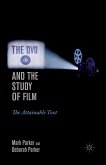According to the sociologist C. Wright Mills in his 1951 book, White Collar: The American Middle Classes, the new entrepreneur was a lone wolf able to succeed in post-World War II corporate America by elusively meandering through various institutions. During this time, anthology writers such as Rod Serling, Reginald Rose, and Paddy Chayefsky achieved a level of creativity that has rarely been equaled on television since. Yet despite their success, anthology writers still needed to evade the constraints and censorship of 50s television in order to stay true to their creative powers and political visions. Thus they worked as new entrepreneurs who adapted their more controversial scripts for the Hollywood, Broadway, and book publishing industries. Even after the television networks cancelled their prestigious anthology series at the end of the 50s, the most resilient writers were able to redefine what it meant to be entrepreneurs by launching cutting-edge shows such as The Twilight Zone and The Defenders that are still popular today. The New Entrepreneurs includes detailed textual analysis of legendary, sometimes hard-to-find, television anthology scripts that have received only cursory glances in television history until now.








